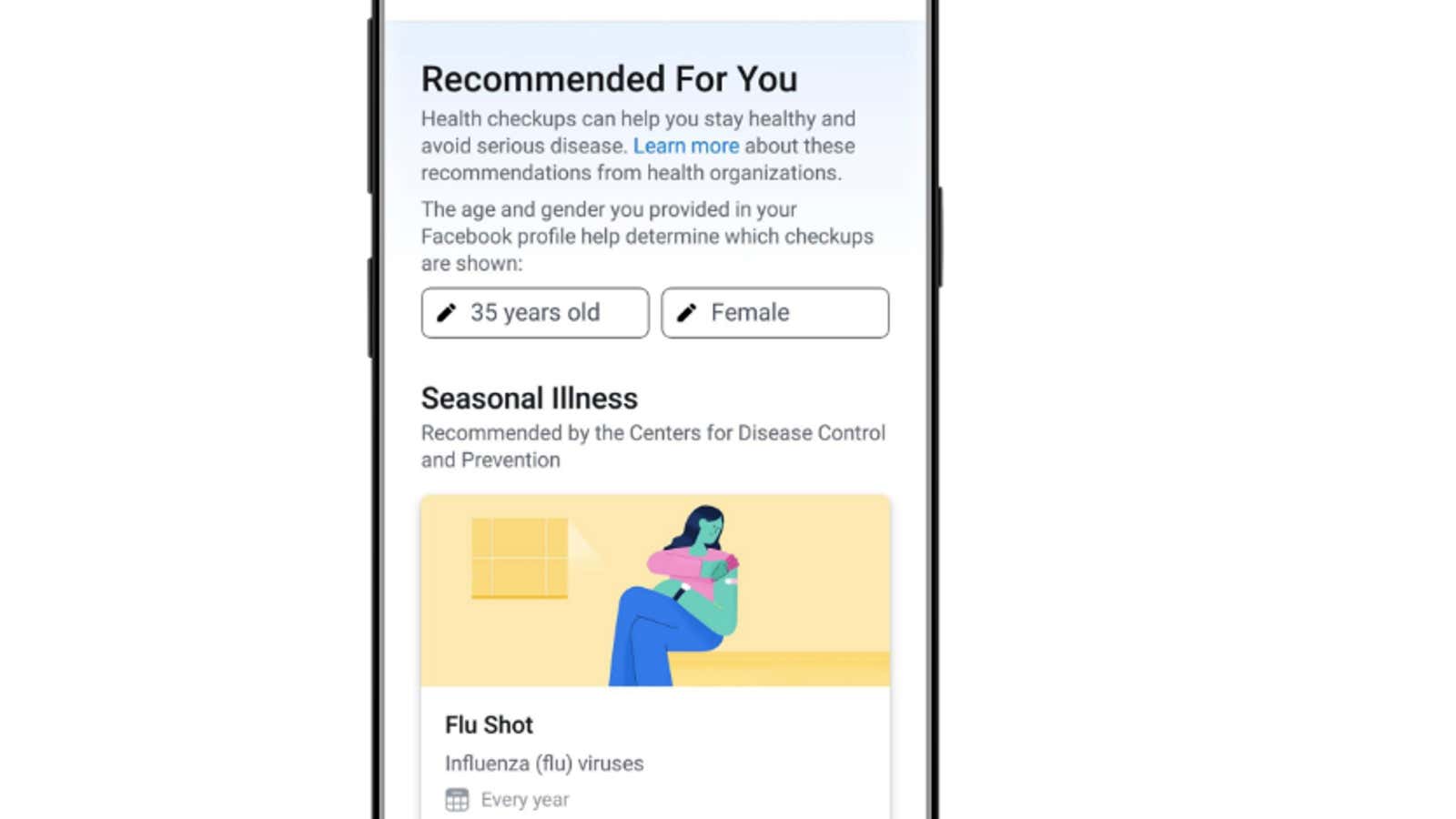If you choose to reveal it, Facebook will know the date of your last Pap smear or blood test. The tech giant back in October announced that users in the United States could opt-in to personalized preventive healthcare recommendations and checkup reminders, based on their age and sex.
In the weeks that followed, many critics expressed concerns about Facebook entering the healthcare space, given the tech giant’s poor track record with safeguarding user privacy. Depending on the user’s demographics, the Preventive Health tool now appearing in users’ feeds will suggest a laundry list of routine health exams, including mammograms, flu shots, and blood pressure screenings. Users can mark when they’ve completed procedures, and elect to receive reminders when they’re due for a follow-up.
As a 30-year old woman, Facebook gave me a list of suggestions that included a Pap test and an HPV test. It also suggested that I get a cholesterol screening, a blood pressure test, and a flu shot. For my male counterparts, Facebook only suggests the last three.
It’s worth noting the extra privacy gambles women are asked to make as they entrust tech companies with details about their reproductive and sexual health. Today, Apple’s HealthKit allows women to track their cervical mucus quality, and a litany of period-tracking apps allow women to document everything from the frequency of sexual activity to mood swings. But some of those apps have already displayed poor privacy practices.
Back in February, Wall Street Journal discovered that Flo, a period-tracking app, was sending data to Facebook, including the likelihood that the user may be ovulating. This fall, UK-based Privacy International found that three popular period-tracking apps were disclosing information to Facebook, including details on contraception use and PMS symptoms. Fertility apps like Flo, Glow, and Ovia are already making money off of targeted ads based on the health data their female users provide.
To Facebook’s credit, the company has said that it will not share user data it collects through the tool with third parties. Preventive Health doesn’t ask you to input details about the results of your Pap smear or any procedure, just the date that it took place. And users can only share the fact that they’re using the tool with friends, not data about the visits themselves. The healthcare data you provide also won’t impact the Facebook ads you see, though actions you take (such as liking a healthcare organization’s Facebook page or clicking on an external website) definitely will.
But that data still belongs to Facebook, and will be seen by a small number of the company’s developers. And while Facebook users may have grown jaded by the social media giant’s practice of tracking their shopping habits or political leanings, for many, medical history is sacred territory. In a survey by Rock Health and Stanford University, only 10% of respondents said they felt comfortable sharing their healthcare data with Big Tech. Of that group, only 36% said they were comfortable with sharing information with Facebook in particular.
As the medical journal Health Affairs points out, social media companies don’t fall under the entities covered by the federal healthcare data privacy law (HIPAA). Neither do apps that track your menstrual cycle, fertility, fitness, nutrition, mental health, and more. While HIPAA-compliant entities like doctors or hospitals must follow protocols to protect their patients’ healthcare data and face penalties if they don’t, Big Tech isn’t held to the same standards.
Despite skepticism about Facebook’s handling of health data, it’s certainly not alone. From wearables like the Apple Watch that can perform ECG readings to medication refill reminders on Alexa, more consumers are getting used to sharing their healthcare data with Big Tech. But no other gadget or app can top Facebook’s 2.5 billion-strong user base, which makes the move even more pressing for privacy advocates. The Preventive Health tool is only available in the US for now, but Facebook will consider making it available globally if it proves to be popular.
